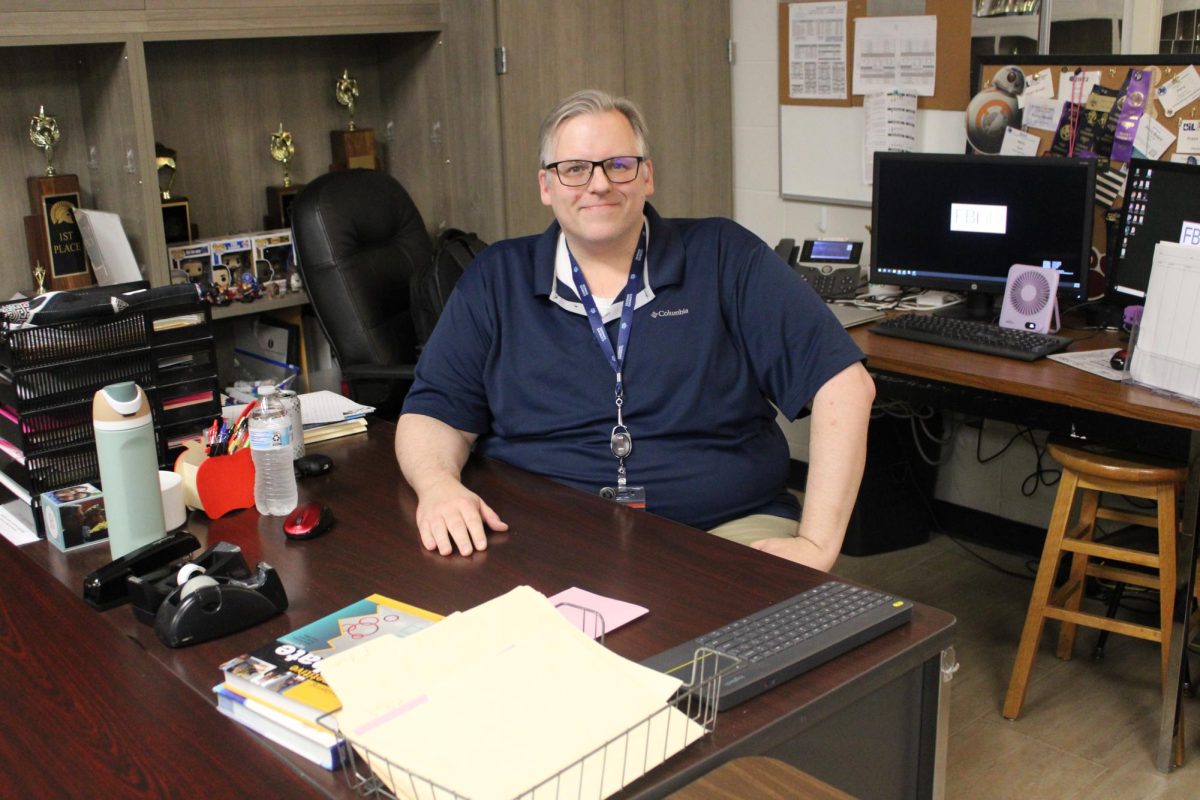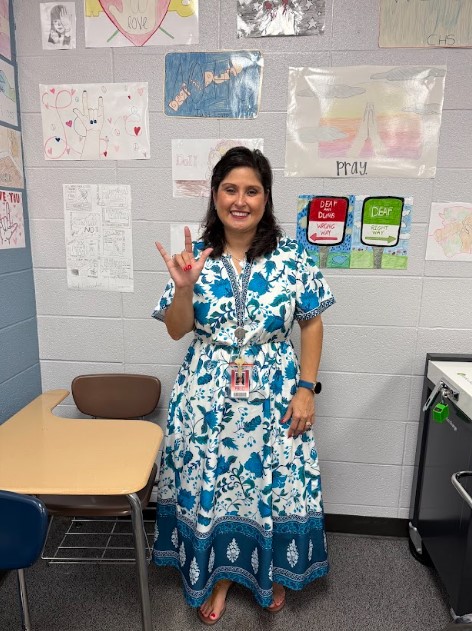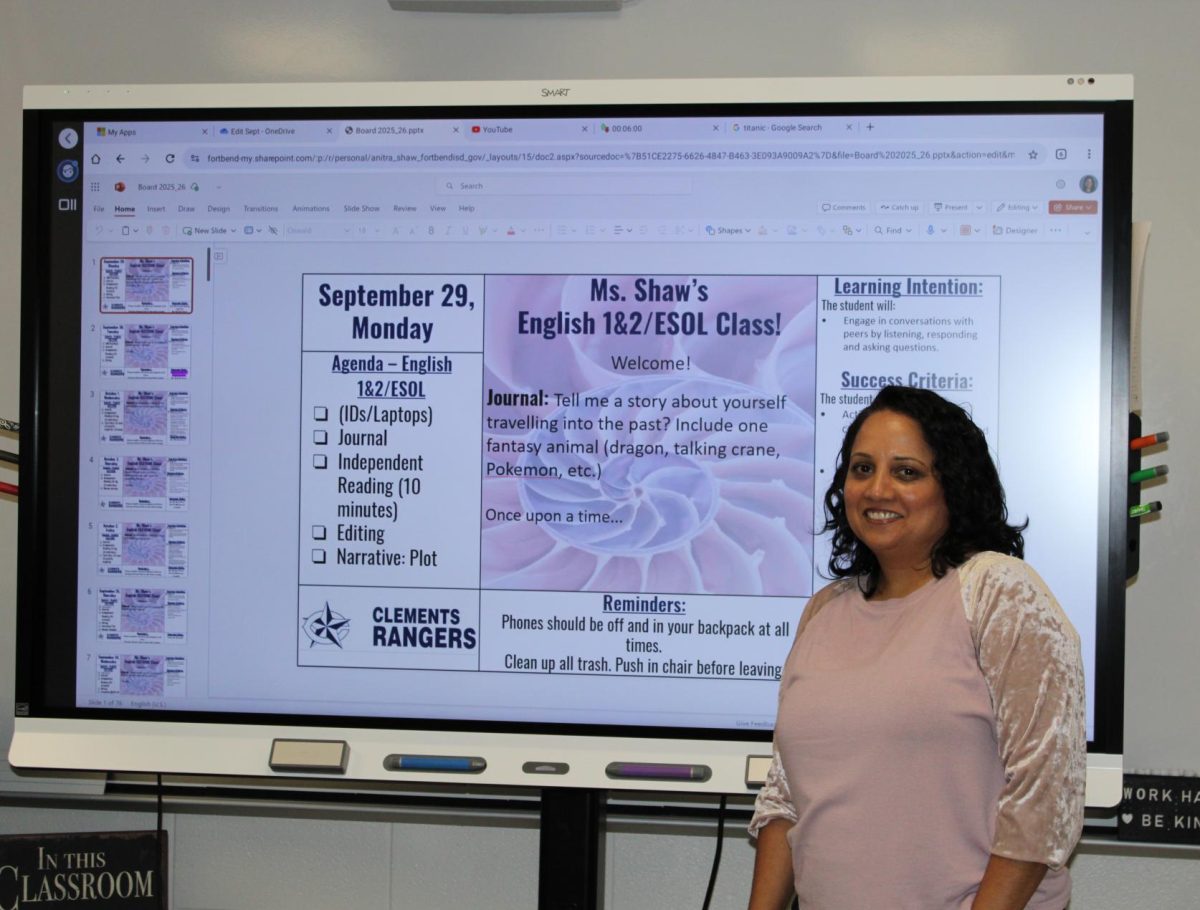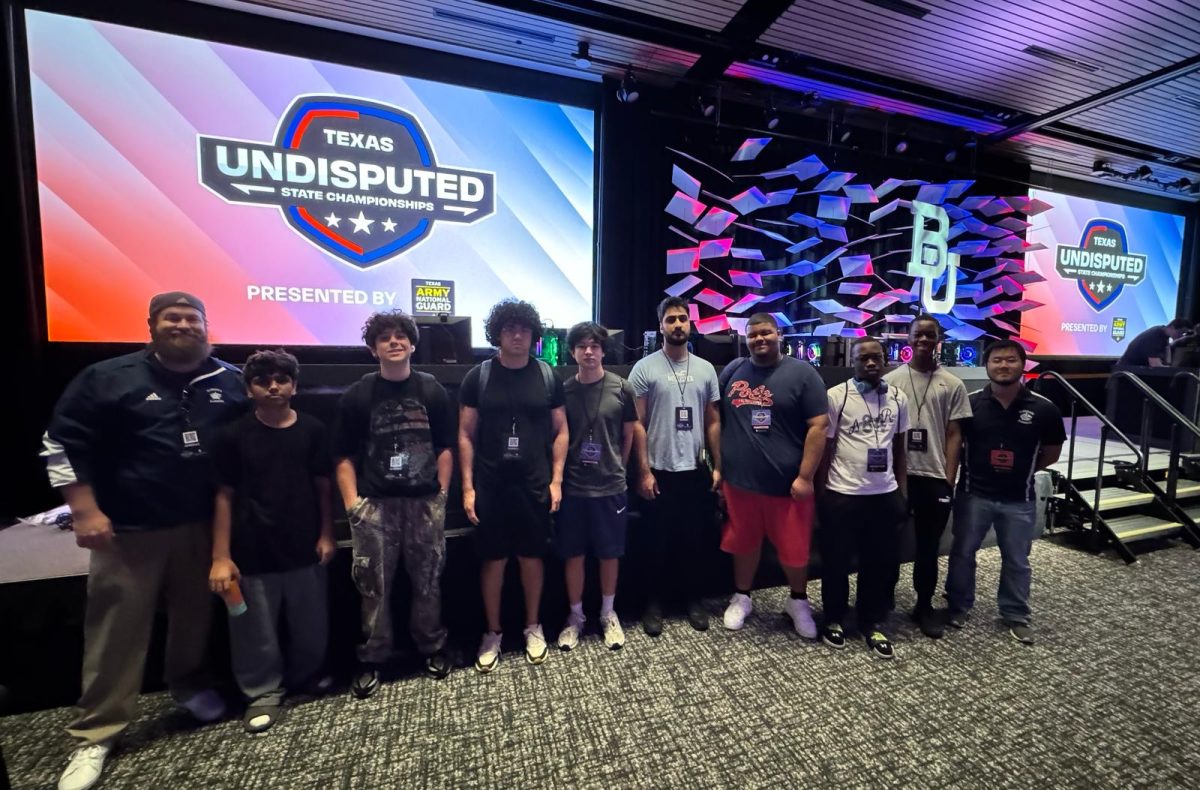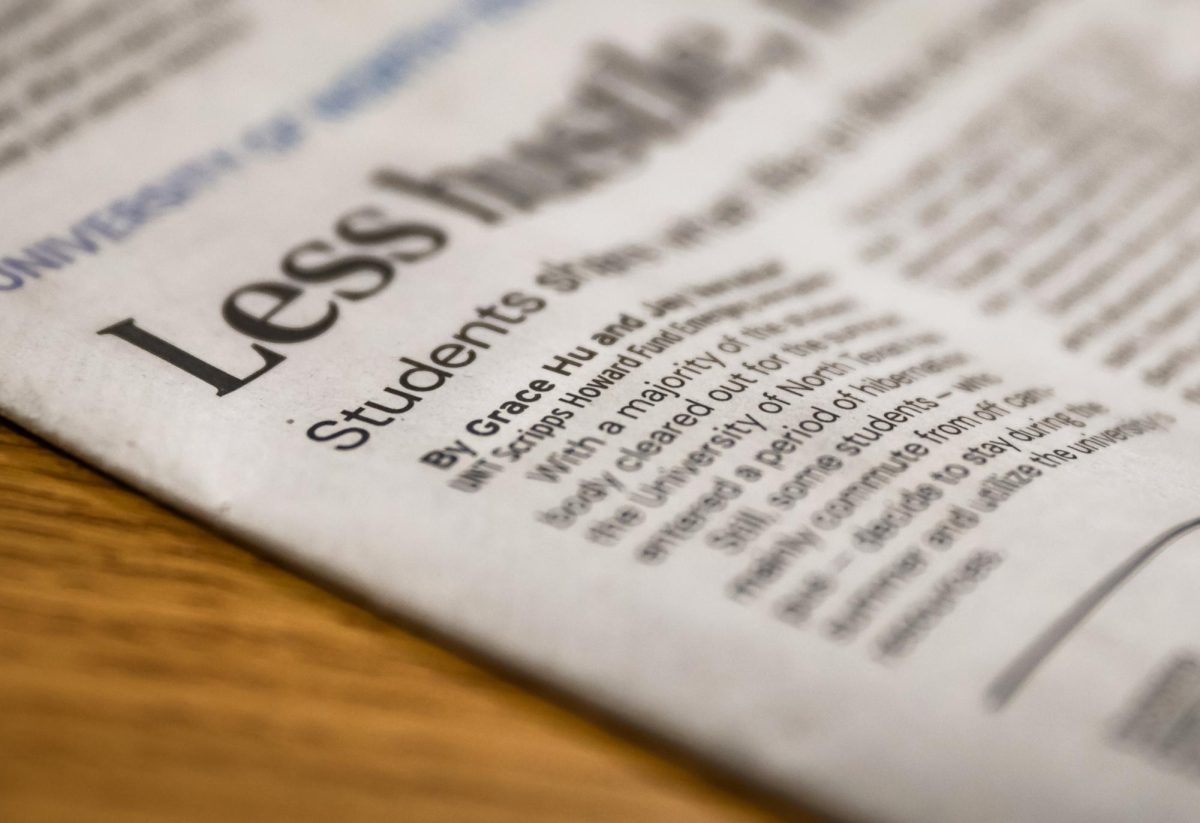
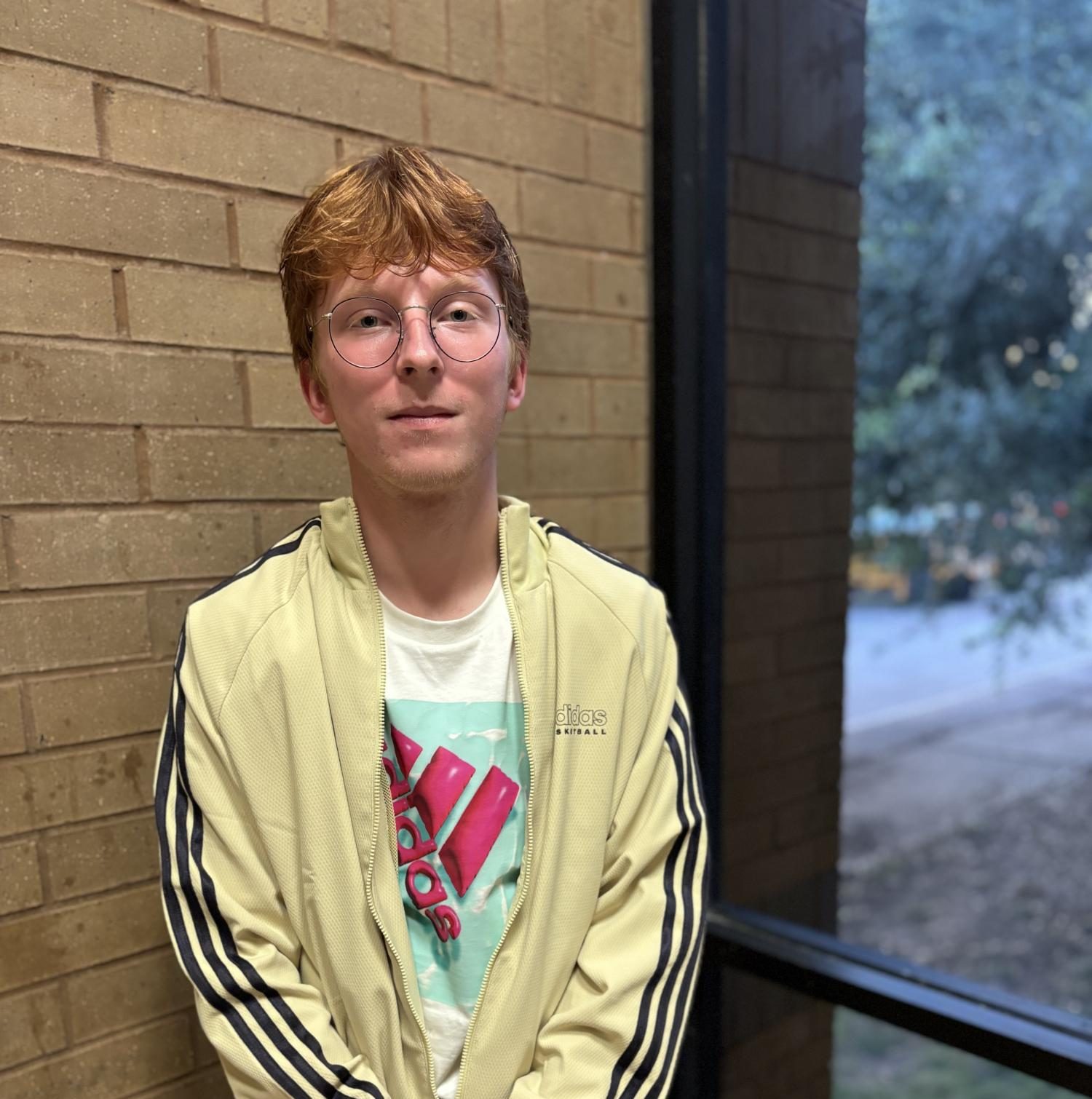
After 10 hours in the sun, to say junior Simeon Borodenko has a sunburn would be an understatement. But even with red stretching across his face and arms, there’s no way he’s calling it quits.
“It gets really hot there and you don’t have any A.C., and I also didn’t have my water half of the time,” Borodenko said. “So yeah, I mean, I wanted to give up, but then I thought, like, what’s going to happen? I just thought about the paycheck, and that it’s better to sit outside than sitting at home and not get any money for that.”
In May, employment among 16-to-19-year-olds hit a high of 38%, reversing a decades-long decline. English department head Glenys McMennamy estimates that around 20% of students in her classes are working part-time – she said that these students tend to have a kind of maturity that stems from working with others, a “calmness” that can also influence their academics.
“There’s a degree to which [a job] forces them to manage their time,” McMennamy said. “Students who may go right home after school and not have other responsibilities sometimes have blinders on and believe they have all kinds of time, whereas a kid who knows that they’ve got to manage their time and budget it, even if they may not feel great about themselves as a student, I think that they end up being better students because that skill helps them in getting everything done.”
Whether students are motivated to get a job to get spending money for themselves or to contribute to their families, McMennamy said she sees them focus more on the collective good, even when facing the stigma attached to working outside of school.
“Yes, we have people who will discriminate or be prejudiced against any number of different traits about someone,” McMennamy said, “But we are, as a school or as a community, I think, and as a world becoming more inclusive and more welcoming. That’s not universal, but in a general sense, that’s not something that one needs to hide.”
Now that the school year has started, Borodenko is only working weekends, and he will stop entirely in September. Looking back, he said the experience definitely helped him grow, making him more responsible and teaching him focus.
“Because it’s my first job, I’m definitely going to remember it,” Borodenko said. “I think it’s kind of cool, being [a] lifeguard, even though it’s not really cool because you’re just sitting there. But it’s not bad for a first job, I think.”

“Oh my god, Coach, I missed you!”
“You’re my favorite coach.”
A swarm of enthusiastic young gymnasts greets junior Laila Younes as soon as she walks into Olympia Gymnastics and Tumbling. Younes has worked there as a coach for half a year now – she said that the thought of seeing the kids is what pushes her to go to class every day.
“It really uplifts you,” Younes said. “[It] makes you [a] happier person because you’re building relationships with not only the staff workers and your manager but also the kids, like ‘oh, I want to go to class, I want to see her today.’”
Younes works 2-hour shifts on weekdays – she tries to get homework done at school, but anything left over has to wait until the late evening, when she gets back from the gym. Despite having to manage an outside job along with school, though, Younes said that working at Olympia has helped relieve pressure.
“In sophomore year, I was very stressed [and] I didn’t have that many friends because everyone wasn’t the perfect friend to have,” Younes said. “Going into that job I met different people from different schools around here [and] they were all really, really nice and welcoming. It’s nice to have people you’re not too close with but they’re still your friends and you could talk to during your job.”
In addition to learning how to make friends, Younes said she gained social skills from the job that made the minimal wages (9 dollars an hour) worth it.
“I’m more outgoing now and I know how to raise my voice more if it’s for speech class or talking across the classroom because of course you have to raise your voice if someone’s across the gym,” Younes said. “It also got me more active.”
Not all parts of the job are as pleasant, though – Younes typically arrives at her shifts 30 minutes early so she can get everything ready, but she gets yelled at when she’s late. Cleaning up every day consists of spraying and wiping down heavy mats. Younes said she also has to field questions about why she works in the first place.
“Some people say ‘oh, why do you work part-time? Your parents can’t give you money?’” Younes said. “My parents were like ‘I hope you know you don’t need this job, we’ll help you buy whatever you want.’ But I feel like it makes me more independent and after making my own money, I feel so proud of myself to buy things for my own money. It’s nice to save and feel like you’re accomplishing something every time.”
Younes plans to graduate early and go to a community college, then transfer to the University of Houston. Even if she was “super, super rich”, Younes said, she would rather have a job than sit at home all day and do nothing – a testament to the long-lasting impact her time working has had.
“I feel like I’m going to tell my kids about it, like ‘oh yeah I was a gymnastic coach,’” Younes said. “It’s so cool to tell people that. It’s a perfect first job, honestly, to look back at, so cute.”

A 19th of the day.
20th.
21st – almost there.
Alex Chen is counting down the hours as he brings cart after cart from the corral back to the HEB storefront – it’s the only way he gets through the merciless Houston heat.
“That’s what motivated me,” Chen said. “I just put [it] into a numbers game. And each time I climb like a small fraction, I’d be a little excited, and hopefully push myself through the day.”
Chen, now a senior, worked as a cart pusher through his junior year, taking weekend shifts during the school year and various hours during the summer, a demanding schedule that he said was “pretty tiring.”
“Sometimes, I would have a test, let’s say, on Monday, but then I would have a shift, like Sunday night, where it’s a shift from 5 to 11,” Chen said. “And if it’s 5 to 11, realistically, I’m going to be tired after my shift, so my studying ability will decrease. So, if my studying ability decreases, it’ll definitely impact my test. So, sometimes, I just have to give up that shift or call in and say I’m sick in order to take my shift, in order to be able to study.”
Juggling 4 AP classes is hard enough, but Chen also had to manage the lackluster working conditions that come with working a blue-collar job.
“Most customers, they do very frustrating things that make pushing carts very difficult,” Chen said. “This general rudeness and inconsideration for people that push carts, most of the time. It’s not seen as a worthy job or like those hours that I put in aren’t worth it.”
Though Chen didn’t initially take the job for financial reasons, he said it ultimately taught him the true value of money, knowing that each hour was only 14 dollars.
“Whenever you’re using your parents’ money or you’re using your privilege, the money doesn’t seem like much, it seems like water, right?” Chen said. “But then working your job and using that money on your own, it makes the money seem much more valuable and you don’t want to waste it as much. You genuinely think about your purchases that you want to take.”
Chen has since quit, but he said that after his year of working part-time, he would recommend that every person should work at least a few shifts in the service industry in their lives.
“It teaches you a lot about humanity and it teaches you that you need to be humble as well, because those people matter as well,” Chen said. “They’re just trying to get by as well. Just as much as you are, they’re also trying to get by.”

Senior Rylee McGeehon is not a couch potato, despite what other people may think.
“I still consider doing work an extracurricular, but since I’m not participating in it at school, people don’t really know what I’m doing,” McGeehon said. “They kind of just assume that I go home and do nothing in a sense. But I am working, and I think that teens with part-time jobs should definitely be more appreciated because it’s a lot of effort having to get transportation to go to your job, doing the job, and then coming home and still having to prepare for the school day. It’s a lot.”
McGeehon has worked at Detectachem, a company that creates drug and bomb detection kits for enforcement in school districts, since May. She worked 40 hours a week during the summer.
“I would get asked to hang out sometimes, and I would kind of just have to be like, ‘hey, you know, I’m at work’,” McGeehon said. “That kind of bummed me out a little bit at first, but I think having this job and being able to get paid has really helped a lot with helping me pay for things like working and going and hanging out with friends.”
Now, McGeehon is working 3-hour shifts twice a week. She said having seventh period off has helped her manage schoolwork along with the job, and that working is something she takes pride in.
“I think it’ll look great for whenever I apply to a job in the future, having this experience, especially in the field that I’m working in,” McGeehon said. “It’s definitely relevant to what I’m looking to do in the future, so I think it’s been very helpful, and I’m glad that I decided to do it.”
McGeehon plans to major in business marketing; she said working at Dectectachem has given her a useful behind-the-scenes perspective of the industry. Knowing that she can be fired at any moment has also taught McGeehon valuable life lessons – more so, she said, than school has.
“I think that having a job teaches a lot of kids about having responsibility and gives them an experience like what they’re going to have to do in the future at their future jobs,” McGeehon said. “I think it’s something that everyone should do, honestly, because you’re learning things that you’re not going to be able to learn at school. I just think it’s great to have this experience before going off to college.”



